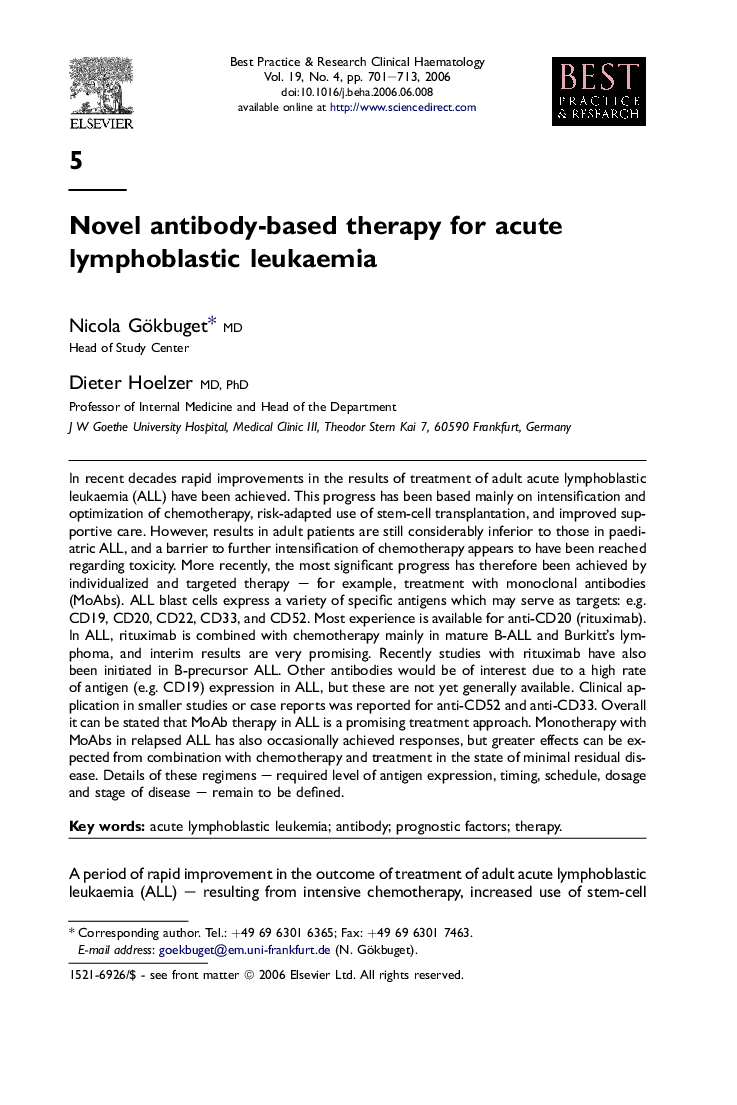| Article ID | Journal | Published Year | Pages | File Type |
|---|---|---|---|---|
| 2100602 | Best Practice & Research Clinical Haematology | 2006 | 13 Pages |
In recent decades rapid improvements in the results of treatment of adult acute lymphoblastic leukaemia (ALL) have been achieved. This progress has been based mainly on intensification and optimization of chemotherapy, risk-adapted use of stem-cell transplantation, and improved supportive care. However, results in adult patients are still considerably inferior to those in paediatric ALL, and a barrier to further intensification of chemotherapy appears to have been reached regarding toxicity. More recently, the most significant progress has therefore been achieved by individualized and targeted therapy – for example, treatment with monoclonal antibodies (MoAbs). ALL blast cells express a variety of specific antigens which may serve as targets: e.g. CD19, CD20, CD22, CD33, and CD52. Most experience is available for anti-CD20 (rituximab). In ALL, rituximab is combined with chemotherapy mainly in mature B-ALL and Burkitt's lymphoma, and interim results are very promising. Recently studies with rituximab have also been initiated in B-precursor ALL. Other antibodies would be of interest due to a high rate of antigen (e.g. CD19) expression in ALL, but these are not yet generally available. Clinical application in smaller studies or case reports was reported for anti-CD52 and anti-CD33. Overall it can be stated that MoAb therapy in ALL is a promising treatment approach. Monotherapy with MoAbs in relapsed ALL has also occasionally achieved responses, but greater effects can be expected from combination with chemotherapy and treatment in the state of minimal residual disease. Details of these regimens – required level of antigen expression, timing, schedule, dosage and stage of disease – remain to be defined.
